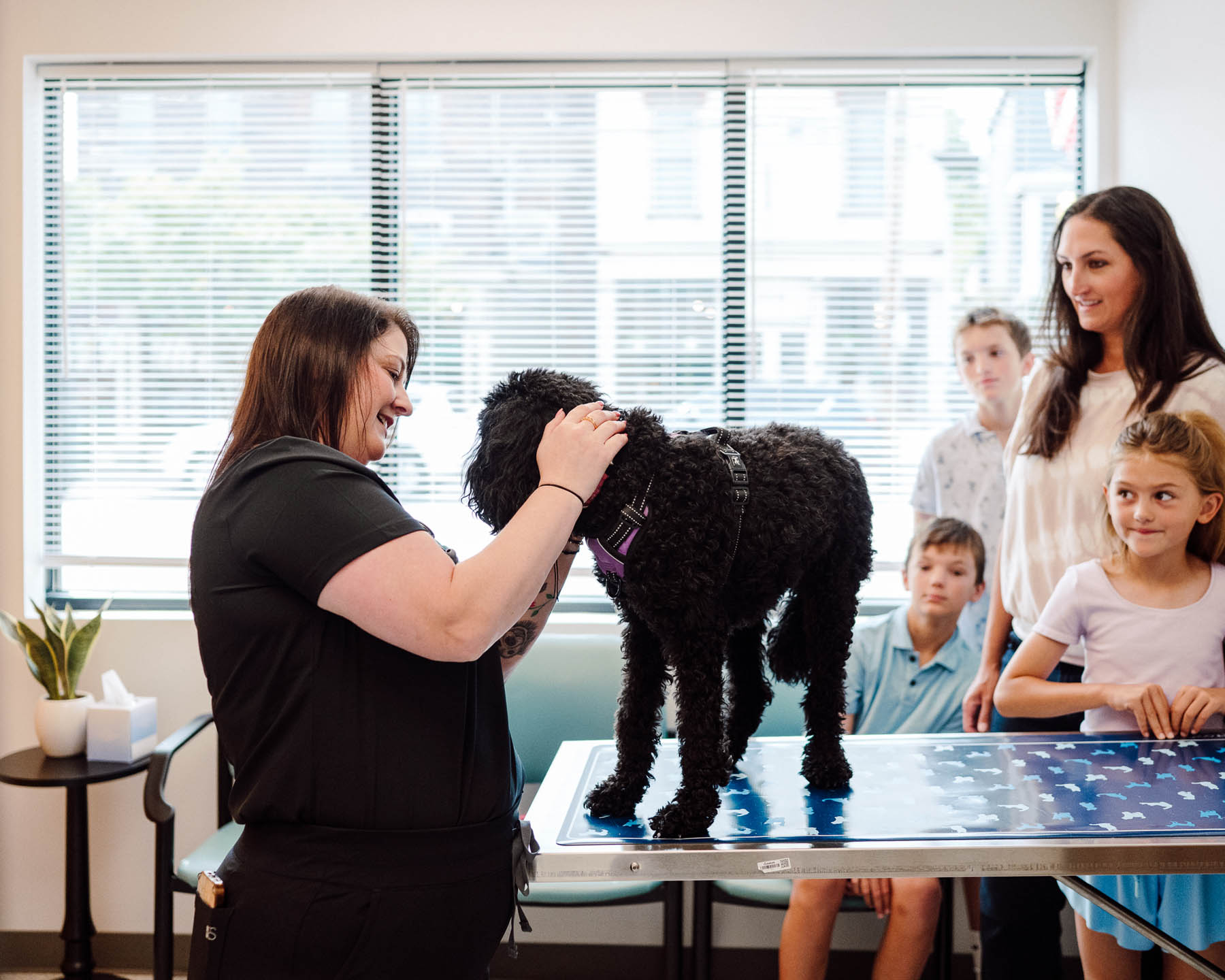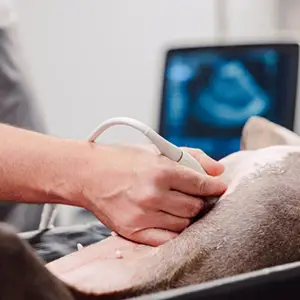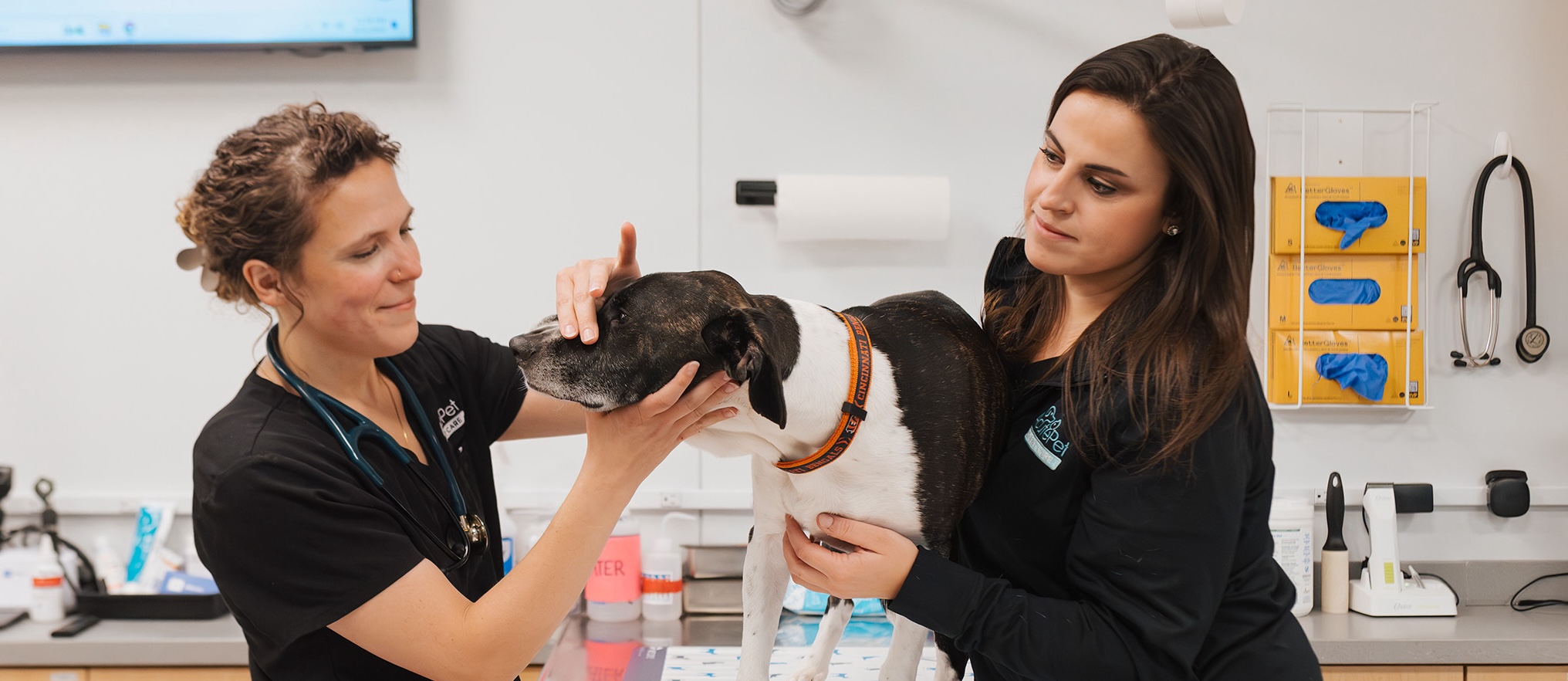what we treat,
we treat with compassion.


concerned about your pet’s symptoms?
we’re here to help.
Has your pet suddenly lost their appetite? Developed a persistent cough or irritated skin? Changes like these can be concerning, and that’s exactly why AcutePet Urgent Care is here.
Our experienced veterinary team is ready to support your pet through unexpected and concerning health issues. We’ve helped countless pets recover from a wide range of conditions—and we’re here to help your pet, and your family, feel at ease again.

what we treat
- Bee Stings
- Digestive issues
- Flea allergy or infestation
- Hives
- Insect bites or stings
- Itching/Scratching
- Licking/Chewing affected area
- Red, irritated skin
- Rubbing face
- Runny eyes or nose
- Skin irritation or infection
- Snake bites
- Sneezing
- Swelling of face, ears, lips, ocular area
- Vaccine sensitivity or reaction
- Discomfort
- Licking
- Scooting
- Hiding
- Lethargy/Decreased Activity
- Allergic conditions
- Foreign object inhalation
- Lower respiratory irritation, virus or disease
- Upper respiratory irritation, virus or disease
- Cremation
- Euthanasia
- Discharge
- Discomfort
- Infections
- Redness
- Swelling
Some pets maintain a baseline temperature slightly above or below these ranges.
- Cats – the normal body temperature is between 100.5 and 102.5 degrees F.
- Dogs – the normal body temperature is between 99.5 and 102.5 degrees F.
- Broken toenail
- Lameness/Limping
- Possible broken bone/Fracture assessment
- Trouble/Difficulty walking
- Wounds, lacerations (cuts), abrasions (scrapes), abscesses
- Assistance in administration of prescribed medications
- Subcutaneous fluid administration
You know your pet best – sometimes it is hard to determine exactly what is bothering them, but you know they just aren’t themselves. This can be your pet’s way of letting you know they aren’t feeling well or are sick.
- Change in activity level
- Change in appetite
- Change in behavior
- Hiding
Animals are often very good at concealing any discomfort, and it may be shown in less obvious ways, like slight changes in behavior, activity, or body language.
- Arthritis
- Back Pain
- Neurologic
- Oncologic (cancer related)
- Orthopedic (bone, joint, muscular)
- Hot spots
- Itching
- Masses or lumps
- Rashes
Quick intervention is usually indicated for most ingestions or exposures, and may include induction of vomiting, decontamination or administration of binding agents, supportive care, or medications.
- Chemical substances or compounds
- Medications (human or veterinary)
- Overdoses
- Plants
- Medication side effect or overdose
- Metabolic disease or disorder
- Neurological disease or disorder
- Toxin exposure or ingestion
- Bloody urine
- Dehydration
- Increased frequency
- Straining or difficulty urinating
- Urinary tract infection
- Change in appetite – not eating or drinking, or excessive eating or drinking
- Constipation
- Dehydration
- Diarrhea
- Dietary indiscretion
- Foreign material ingestion
- Intestinal parasites (worms)
- Lethargy
- Regurgitation
- Vomiting
trust your instincts
Recognizing when your pet needs immediate care isn’t always straightforward. Visible symptoms like limping or bleeding—or more subtle signs like lethargy or appetite loss—can indicate that something is wrong. You know your pet best. If they’re not acting like themselves, trust your gut and get in touch.

don’t wait, timely care matters
When your pet isn’t acting like themselves, timely treatment is key. You don’t have to wait. Same-day appointments are available to book online, or you can call ahead to speak with our team. Not sure if your pet’s condition is something we treat? We’re happy to answer your questions and provide guidance around care.
Whether it’s gastrointestinal problems, mobility issues, or allergic reactions, we’re equipped with the knowledge, diagnostic tools, and compassion to provide the care your pet needs—when they need it most.
guiding great care for pets and their people.

John D. Anastasio
DVM, DACVECC, Chief Medical Officer
At AcutePet, we know how much your pets mean to you—they’re family. That’s why our Chief Medical Officer, Dr. John Anastasio, plays such an important role in shaping every aspect of the care we provide. As a board-certified veterinary criticalist, Dr. Anastasio brings the kind of advanced training usually found only in specialty hospitals right into our urgent care clinics. His experience leading some of the nation’s most respected veterinary teams ensures that whether your pet needs immediate help or routine urgent care, they’ll always receive thoughtful, consistent treatment.
Dr. Anastasio began his path in veterinary medicine in New York City, studying Biology at the City University of New York before earning his veterinary degree from Ross University and completing clinical training at the University of Pennsylvania. After advanced training at the Animal Medical Center in Manhattan and a residency at Tufts University, he became a board-certified specialist in Emergency and Critical Care. But what sets Dr. Anastasio apart isn’t just his expertise, it’s the way he guides our doctors and staff to care with compassion and heart. From mentoring our teams to setting the highest standards of care, his leadership creates an environment where pets come first, families feel reassured, and our staff feels supported.
With Dr. Anastasio’s influence woven into every AcutePet clinic, you can trust that the pets you love are always in the best hands.
need a same-day appointment?
Book online, call ahead, or walk in.
Questions about specific conditions? Give us a call, we’re here to help.
As a facility providing urgent care for family pets, we prioritize the safety of our patients and their families. Therefore, we are unable to treat stray animals or wildlife.
